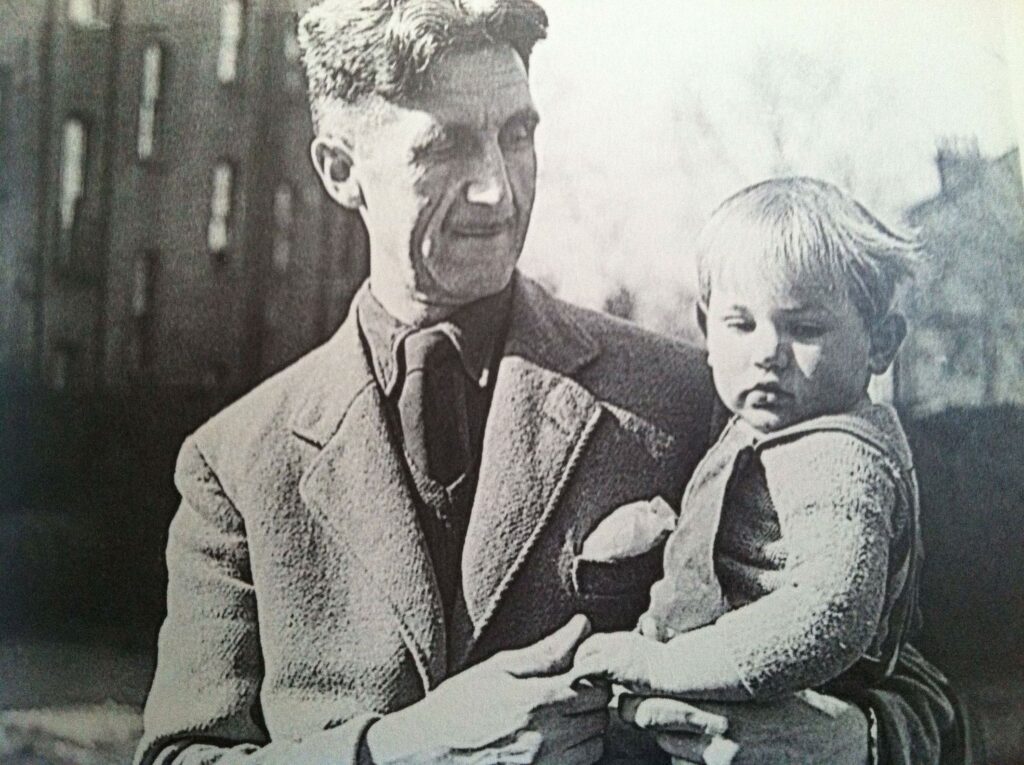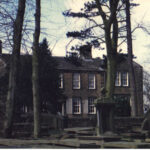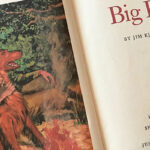Culture, Historical Essays, Literature
The Last Days Of George Orwell
For a man who breathed his last at the young age of 46, Eric Arthur Blair—better known as George Orwell—had an almost unparalleled impact on the Anglosphere he left behind. A journalist, novelist, and diarist, his works have been read by generations of schoolchildren and his name is invoked by politicians of both the Left and the Right to accuse their opponents of the Orwellian practices of state surveillance, gaslighting, brazen lies, mob trial, and more. He likely would have despised them all.
Orwell was born on the 25th of June, 1903, in eastern India to a British colonial civil servant who shipped him back to England to receive an education at Eton. His short professional life unfolded in unlikely places around the world and began in the Indian Imperial Police in Burma. After his resignation from that force in 1927, he worked a series of menial jobs in Paris as he struggled to make it as a writer. His first book Down and Out in Paris and London was published in 1933 under the pseudonym George Orwell to avoid embarrassing his family. Burmese Days followed in 1934.
His political affiliations zig-zagged with his travels. In the late 1920s he was an anarchist; by the 1930s, a socialist. In 1936 he was commissioned to write an account of the grinding poverty among the miners of northern England, published in 1937 as The Road to Wigan Pier. In 1936, Orwell also travelled to Spain to fight Franco’s Nationalists, took a bullet in the throat, and eventually fled, fearing that the Soviet-backed communists there would kill him along with other socialists who dissented from their goals and methods. That experience transformed Orwell into a prescient and passionate anti-Stalinist, and he summarized his short war in Homage to Catalonia.
Orwell was a man of the Left, but he hated the evil empire that so many progressives sought to defend. Leftists who claim Orwell as their own would likely be surprised to discover that he was very socially conservative, vehemently opposing abortion. He was a man of principle and hated injustice wherever he found it. In his 1936 novel Keep the Aspidistra Flying, the protagonist is horrified when his girlfriend suggests they procure an abortion:
His baby had seemed real to him from the moment when Rosemary spoke of abortion … But here was the actual process taking place. Here was the poor ugly thing, no bigger than a gooseberry, that he had created by his heedless act. Its future—its continued existence perhaps—depended on him. Besides, it was a bit of himself—it was himself. Dare one dodge such a responsibility as that?
During World War II, Orwell worked on propaganda for the British Broadcasting Corporation as his writing career exploded. He picked up a literary editorship at the Tribune, and in 1945 his novel Animal Farm was published, excoriating the absurdities of Joseph Stalin’s bloody regime. His most famous novel, 1984, was published in 1949 and contained phrases that still litter the English language: Newspeak, Big Brother, and more. By this point, he had nearly worked himself to death, and he died of tuberculosis on the 21st of January, 1950. He never witnessed the phenomenal success his work would see over the ensuing decades.
A devoted father
Orwell has been gone for over 70 years now, and everyone who knew him during his career has long followed him into the grave—all except one. Many people do not know that Richard Horatio Blair, himself now an elderly man, is the adopted son of Eric Blair, and he still remembers the handful of years he spent with his famous father. I wanted to speak with someone who knew Orwell personally, and a few years ago I managed to track Blair down and give him a call. He kept his silence for years, but when I contacted him, he was more than happy to talk about his father. His gravelly voice made for easy listening.
“My story starts on the 14th of May, 1944, when I was adopted by Eric Arthur Blair and his wife Eileen,” he told me. “This was during the Second World War. He’d been wanting a child for several years because he felt, rightly or wrongly, that he was unable to have children himself. I think this was compounded slightly by the fact that Eileen—my mother—was not very well herself, and in fact when I was ten months old, in March of 1945, she went to the hospital in Newcastle, which was the area where she was born and had gone to school. She went into a nursing home and died very soon after being anesthetized to have a hysterectomy. She probably had cancer, was very anemic, and simply had a heart attack on the operating table and died.”
The adoption had come about when Eileen was told by her sister-in-law, Dr. Gwen Shaughnessy, that she knew of a pregnant woman whose husband was off fighting. Orwell and Eileen adopted Richard when he was only three weeks old, and Orwell ensured that he alone would be known as Richard’s father by burning the names of the birth parents from the birth certificate with a cigarette. Richard would never know Eileen, as she died a mere nine months after the adoption took place, leaving the little boy and Orwell to fend for themselves. Some of Orwell’s friends suggested that perhaps he turn Richard over to someone else, but Orwell was having none of it. “I’ve got my son now, I’m not going to give him over,” Blair recalled. Blair even remembers Orwell “changing my nappy and feeding me after my mother died.”
“Meanwhile, my father had been asked to go to Germany at the end of the war by his friend, a gentleman by the name of David Astor of the Astor family,” Blair told me.
He was the proprietor of a newspaper called The Observer, and he asked my father—they had met during the war and become friends—to go to Germany after the war to observe what was happening, and it was while he was in Paris that he got a telegram telling him that Eileen, my mother, had died. He had to rush back and attend to the funeral and funeral arrangements. He decided the best thing he could do would be to go back to Germany and continue his war report, so that’s what he did. I was placed in the hands of relatives and friends to be looked after. I was cared for from that period onward by a nanny.
In 1946, he had decided to give up his reviews and extra work, because by now he had published his first major book, Animal Farm, which gave him enough resources to think about what to do next. And he had in his mind by then that he wanted to write what turned out to be 1984, and he decided to take the invitation of his friend David Astor to go to a remote island off the west coast of Scotland called Jura. He went up for a holiday and spent a couple of weeks there in the early part of 1946, came back, and announced that he would like to move out of London to this island of Jura and rent a farmhouse called Barnhill. A few weeks later I joined him with my nanny at the farmhouse, a place he had indicated to a friend was a very ‘un-get-at-able’ place.”
Indeed it was. To reach the remote Hebridean island from London, “you had to take a train and several ferries, and then a taxi from the top part of the island, and then for the last five miles you had to walk,” Blair recalled. At first, it was Richard, Orwell, and his nanny, Susie Watson. This didn’t last long: Watson clashed with Orwell’s younger sister Avril and returned to London. “From that point on,” Blair told me, “I was cared for by my father’s sister Avril, and that continued well past when he died in 1950.” In the meantime, Blair still had a few precious years with his ailing father, who was trying to balance his fear of passing on his tuberculosis to his son with wanting to be an involved father. “He was really hands-on in a way that was really unusual for that era,” Blair told one interviewer.
READ THE REST OF THIS ESSAY AT THE EUROPEAN CONSERVATIVE








